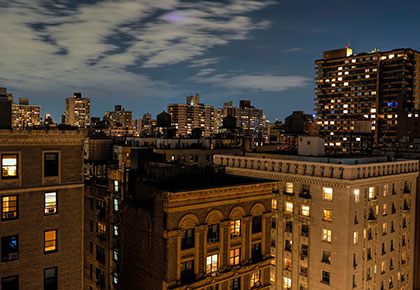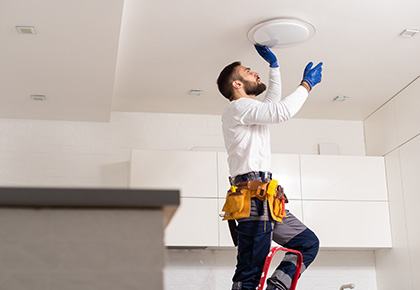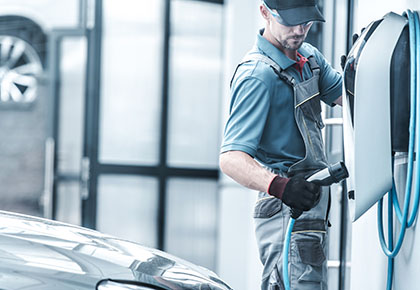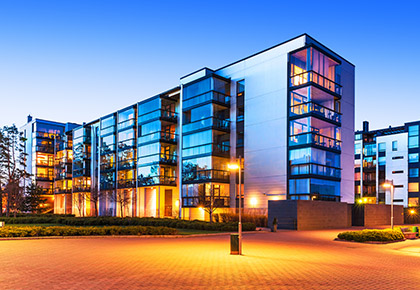-

Enhancing energy benchmarking in condos and co-ops
Condominiums (condos) and cooperative housing communities (co-ops) are increasingly recognizing the importance of sustainability and energy efficiency in today's world. One vital tool that plays a crucial role in this effort is energy benchmarking. -
Why Millennials Matter to the Future of Your Association
Millennials are the fastest growing group of home buyers in the US. Learn why you need to get this important demographic involved in your association today. -
How to save on energy costs in the summer
Summer’s longer days mean more time to enjoy warm weather and sunshine, but they also mean higher energy bills. There is a bright side, however: by implementing an energy management program within your community, you can help keep costs down without sacrificing comfort. -
Incentives Aim to Green Up New York, Reduce Operating Costs for Building Owners
A recent study found that 75% of greenhouse gasses in New York City are generated by buildings, primarily multifamily residential buildings. As part of a city-wide effort to incentivize buildings to develop programs to curb emissions, FirstService Residential held its Third Annual Green Expo & Symposium on May 15 in New York. The event featured a panel of industry experts, including FirstService Residential President Dan Wurtzel, who described the benefits of participating in city programs, as well as the opportunities to save money, help the environment and enhance property values. -
Keeping HOA and Condo Common Areas Clean During the Coronavirus Pandemic
During these unprecedented times, residents are spending the majority of their time at home to prevent the spread of COVID-19 and protect themselves and their loved ones from infection. One of their primary contact points with the outside world is in your HOA or condo common areas, where they can be at risk of contact with lingering coronavirus or even spread existing virus to other areas of the property. Read on for a comprehensive list of places to clean and how to clean them. -
Fall tips for homeowners: Preparing your HOA for fall
Whether your HOA is self-managed or professionally managed, getting started on your fall and winter prep will help keep your operations running smoothly as the seasons and temperatures change – and that will keep your residents happy as well. -
Managing Community Maintenance and Improvement Needs
Whether your community is self-managed or professionally managed, maintenance is a big part of the day-to-day responsibilities. It’s a responsibility that can quickly become overwhelming, especially when you walk in on a Monday morning to a list of what went wrong over the weekend. -
Managing Waste for a Greener Community
With a growing focus on proper environmental stewardship, many associations are working toward implementing green initiatives. But getting there can be daunting. With so many programs and opportunities available for all of us to reduce, re-use and recycle, it’s hard to know where to begin. -
Mold: How Should Your Association and Homeowners Handle It?
No one wants to find mold in their home or any association building. Unfortunately, mold is ubiquitous – it’s in the air and in the water, and when given the chance, it spreads like crazy. Learn steps to prevent mold or to have it assessed and properly treated, preserving your buildings and the health of your residents. -
Pros and Cons of Do It Yourself Repairs and Maintenance
FirstService Residential's Bill Worrall discusses the hidden costs of DIY maintenance and repairs and provides great insight into how boards can determine what can be done in house and what should be subbed out to appropriate contractors. -
Put an Energy Saving Program Together for a Multifamily Property
Many HOAs and community associations would like to save energy and energy spending, but they think that putting an energy management plan into place for their multifamily property is difficult to accomplish. FS Energy's Chris Normandeau explains some basic, easy-to-do steps that can make a real impact on an association's energy usage and budget. -
5 Steps to the Best Reserve Study Firm
In our guide to capital improvements , reserve studies and their relationship to capital improvements and preventive maintenance were discussed at length. -
Seven Ways to Fight Mold - And Win
It’s the scourge of households everywhere: the unsightly, unsanitary, unbecoming sight of mold. But waging war on mold means more than launching a full-scale assault when you see it (though that can be part of the battle plan). Instead, consider a comprehensive strategy – here are some tips to help you get started and steer clear of mold. -

5 strategies for energy conservation in community associations
In this article, we delve into the significance of energy conservation within community associations, exploring its benefits and strategies for effective implementation. -
Simple Energy Conservation Steps to Benefit Your Community This Winter
So what can condo boards or community associations do to mitigate or even reduce costs this winter? Let’s start with what you can do in the summer and fall, before winter actually begins. This includes cleaning, tuning and performing any necessary repairs to heating systems, furnaces and boilers to make sure they won’t be working longer, harder or less efficiently than they should. Other pre-winter tasks include cleaning gutters to remove leaves and debris to ensure water can flow freely. Otherwise, water can become trapped and freeze, which can not only damage your property’s gutters, but also cause ice dams and possible roof leaks. -

Six steps to implement EV charging in high-rise condos
No longer the products of science fiction fantasy, electric cars are now a reality of everyday life. While the reduced emissions of personal electric vehicles, or PEVs, are good news for the environment, their charging requirements may create challenges for condo associations trying to navigate their infrastructure requirements, legal implications, management concerns and even aesthetic considerations. -
Six Things to Know About Fire Hydrants
Aside from knowing to not park next to one, how deep is your knowledge of fire hydrants? Unless you’re a firefighter, it’s probably not that extensive. This may not be a problem... until the unthinkable happens and you need to be confident that your fire hydrants are in good working order. But like any equipment in your community, fire hydrants need to be maintained. -
Want to Start a Neighborhood Watch Program? Here are Some Important Considerations
Neighborhood Watch programs can provide significant benefits to communities – after all, they boost community awareness, communication and involvement, while reducing opportunities for neighborhood crimes to occur. But if you’re interested in getting started, there are many important factors to consider. Here’s an overview. -
3 common residential drainage problems and their solutions
Unless you live in an area where it hardly ever rains (in which case you have a whole other set of problems), drainage will be an issue in your community. Proper drainage is, of course, the answer, but getting there means you have to meet stringent requirements throughout different areas of your community. -
Tips for Eco-Friendly High-Rise Living: Living Sustainably in the City
Many multifamily properties and high-rises want to implement “green” living practices and create eco-friendly communities, but not everyone knows where nor how to get started. Here are some effective and easy tips to help you be proactive and successful in achieving your sustainability goals. Read on for a list of programs and services that can be put in place in your community at little to no cost. -
Tips to Help Your HOA Winterize Your Community
It’s that time of year again – there’s a noticeable nip in the air, trees are losing their leaves and stores are starting to display their holiday swag. That can only mean one thing – winter is right around the corner. If your HOA is located in an area affected by wintry weather, we probably don’t need to remind you about last year’s Arctic-level freeze. Some of the coldest-ever temperatures were recorded in many parts of the country – and if you heed the predictions in the Old Farmer’s Almanac , you know that this year promises to be even more frigid. Is your community prepared to handle the upcoming chill? Here are some tips to help your homeowners association winterize your community, no matter what surprises the season may bring. -
Tips to Help Your Homeowners Association Organize a Community Recycling Program
Is your homeowners association considering starting a recycling program for your community? If so, bravo! Take a look at some of the benefits: conserving energy, saving water, preserving resources, reducing air pollution and saving landfill space. And did you know that in addition to helping the environment, recycling can also provide economic benefits as well? To get you started, here are some tips and considerations to help your association plan and implement a successful recycling program for your community. -
How to Uncover Savings for Your Condo or Co-op Association with an Energy Audit - Energy Efficiency Part 2
Improving your building’s energy efficiency is good for your budget and for your property values. Getting a professional energy audit is a crucial step on the road toward energy efficiency. It can tell you which upgrades make the most sense for your property and show you potential energy and cost savings. -

5 ways to reduce energy costs in your condo or coop
No matter where your high-rise building is located, rising energy costs can have a drastic impact on your community association’s budget. Implementing methods to conserve energy can help your association reduce energy costs and optimize your high-rise’s annual budget.